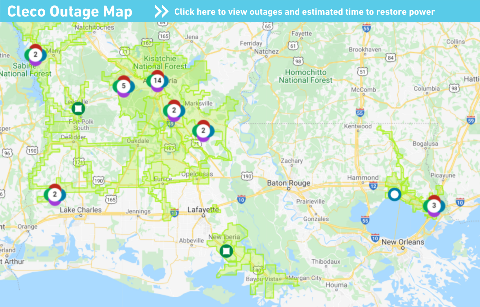Storms can occur at any time during the year, so Cleco is prepared to respond to power outages year round. Cleco subscribes to multiple weather services to help our customers prepare before a storm hits, and the company uses multiple
platforms to communicate with customers during storms, including cleco.com, social media, TV and radio news outlets.
How Cleco Restores Power
- Safety is a priority in everything Cleco does. Once conditions are safe, workers begin to assess damage by land and/or air.
- Next, transmission and distribution lines are inspected and repaired. Transmission lines are critical to power restoration because they carry electricity from power plants to substations that deliver electricity to distribution lines which deliver electricity to homes, businesses, etc.
- Power is restored to critical community services first, such as hospitals, nursing homes, water systems, fire and police departments, etc.
- Power is then restored to the greatest number of customers in the shortest amount of time until power is restored to all customers who can receive power.
